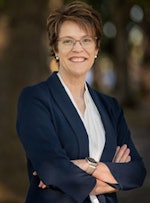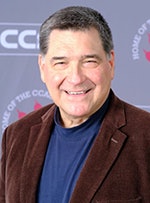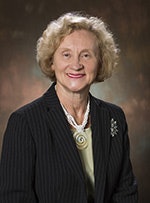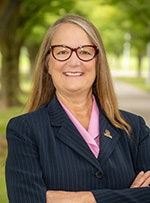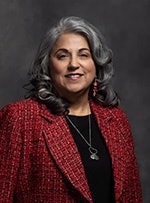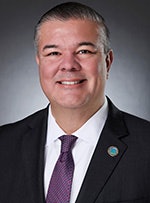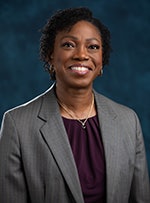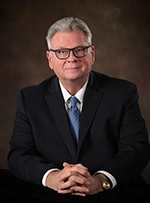ABOUT THE STUDY
The National Institute for Staff and Organizational Development (NISOD) and Diverse: Issues In Higher Education first commissioned this study in 2014 to assess the extent to which diversity and inclusion are embedded in various aspects of workplace culture–including administrative structures, institutional commitments, work environments, and staff practices–at participating two-year community and technical colleges that hold membership in NISOD.
During its inaugural year, the project’s framework was shaped by an advisory board consisting of experts in higher education. The original advisory board included: Tracey Cameron, Stan Carpenter, Joan B. Hirt, Kris Renn, and Sue Saunders.
The larger base project, Promising Places to Work, has been administered by Strayhorn and his teams at various centers. It is now administered by the Student Success Equity Institute, a division of Do Good Work Consulting Group—an independent consulting firm committed to inclusive excellence, student access and success. The Promising Places to Work in Student Affairs project is in partnership with American College Personnel Association (ACPA), whereas The Promising Places to Work in Community Colleges project is in partnership with NISOD.
CELEBRATING PROMISING PLACES AT NISOD 2025
Each year, the recognition of Most Promising Places to Work in Community Colleges is a highly anticipated event. As part of the 2025 NISOD annual conference this year’s recipients will be honored during the Closing General Session Breakfast on May 27 from 8-9:30 AM, JW Marriott in Austin, TX. This signature event provides an opportunity for higher education leaders, faculty, and staff to celebrate the achievements of community colleges that have demonstrated exceptional commitment to diversity, equity, and inclusion in the workplace.
Attendees will have the chance to network with peers, build new relationships, and recognize institutions leading the way in creating inclusive campus environments.
By hosting this celebration, NISOD and Diverse continue to elevate the visibility of community colleges that exemplify best practices in supporting faculty and staff diversity, ultimately contributing to student success.
"NISOD is proud to honor the recipients of the Most Promising Places to Work Award, recognizing institutions that demonstrate exceptional commitment to workplace belonging and employee support in higher education. These outstanding institutions set a benchmark for fostering environments where faculty and staff thrive. We celebrate their dedication to create empowering and growth-focused workplaces that drive meaningful change that ultimately supports student success."
-Kris Tolman, Interim Associate Director, NISOD
ABOUT THE SURVEY
The MPPWCC survey consists of approximately 60 items, organized into 10 major sections. For example, one section elicits contact information for the survey respondent and identifying information about their respective institution (e.g., control, minority-serving institutions [MSI] status). Another section includes several items to assess the structural diversity of the institution and relevant departments in terms of gender, race, sexual orientation, and disability status. There are several sections that measure the availability and extent of support services provided to community college staff on campus, such as professional development.
The survey was developed by Dr. Terrell Strayhorn and is not available in the public domain. The original survey was pilot-tested with a small sample of institutions; feedback from the pilot study helped to clarify survey items, correct logic sequencing, and determine the utility of the scoring algorithm. All survey rights belong to the author. All analyses presented in this edition were conducted by Dr. Terrell Strayhorn and Dr. Royel Johnson.
METHODOLOGY
Institutions recognized as Promising Places to Work were identified through a comprehensive analysis of data collected from an annual survey distributed to all NISOD-member institutions. Selection scores were determined using a weighted algorithm that evaluates key survey components, including diversity-related benefits, staff demographics, and institutional policies (e.g., bias monitoring, staff orientation). As the number of respondents to the annual survey changes each year, the algorithm properly adjusts for the diversity of institutions included in the final pool. For instance, the analysis is sensitive to the availability, presence, and use of inclusive practices, family-friendly programs, staff supports, and diversity initiatives, not the size of one’s institution or staff. For full discussion of these methods, see previous versions of this report in Diverse.
COMMUNITY COLLEGE WORKPLACES
Today’s community colleges are as diverse as the students they serve. There are over 1,100 community colleges in the United States that educate more than 12 million students each year. Community colleges also employ thousands of staff members who work in critical functional areas, including student affairs or support services. These committed professionals strive to make the institution warm and welcoming for all other personnel and students, so that they can develop, grow, learn, and thrive optimally.
This year’s list of the Most Promising Places to Work in Community Colleges includes an impressive cast of two-year institutions that specialize in equipping students for securing the promises of a bright future. Each of them has signature programs and marquee initiatives that make them uniquely who they are. Promising Places is a national recognition that celebrates higher education workplaces that are vibrant, supportive, and committed to staff work-life balance, professional development, and inclusive excellence.
In this edition of Diverse, we strive to pull back the curtain, so to speak, so that others can see the good work going on at these institutions and learn from them to affirm new or improve existing community college workplaces. Promising Places offers institutional leaders information that can be used to improve work environments, boost morale, strengthen teams, and/or continuously improve practices across the student affairs division and broader institution. It also serves as a useful tool for employers, career services staff, and job seekers across the country.
KEY LESSONS LEARNED
Here is what we’ve learned from readers since the initial launch of the Promising Places projects back in 2014:
- Employers use this national recognition to celebrate their success in creating a vibrant workplace for staff, and they mention the award in job placement websites, position announcements, and recruiting materials;
- Career counselors interpret the award to mean that the campus offers high-quality support to staff, respectable compensation, and benefits as well as best forms of practice in terms of diversity and inclusive policies;
- Presidents and provosts acknowledge the national recognition as a mark of distinction, celebrating the strength and success of their institution’s student affairs/services or diversity, equity, inclusion, and belonging (DEIB) operation and, thus, incorporate this information in reports of institutional effectiveness, accreditation, and annual performance evaluations;
- Vice presidents, deans, and senior student affairs officers at community colleges and similar institutions use the information in this special edition of Diverse to develop new or revise existing staff programs and services. For instance, one senior administrator credited the MPPWCC project for several new benefits offered to staff at her institution including flexible work hours, a staff mentoring program, and a new “Voice of the Employee” (VoE) initiative.
“I literally organized my recent job search around Promising Places. I went to the Diverse: Issues in Higher Education website, found the list of featured community colleges, studied the salary, benefits, and all [emphasis added] the forms of support…then applied to only those schools that offered what I was looking for.”
-Marta, learning director, hired since MPPWCC‘21
“Part of our strategy for accreditation and institutional effectiveness at [community college] is to provide direct evidence of achieving campus goals related to staff diversity, faculty support, and professional development. We included our response to the Promising Places survey, as well as the special edition, in our midterm follow-up [report]. It’s been great for making program improvements.”
-Sebastian, institutional research specialist
“I teach a course focused on community colleges and, starting last year, I incorporated the Promising Places project with NISOD as required reading. It gives students a sense of community colleges, their workplaces, issues of diversity, and we get to learn more about student support services at 2-year schools.”
-Alyssa, graduate preparation program faculty member
PROMISING PRACTICES AT COMMUNITY COLLEGES
As the Most Promising Places to Work in Community Colleges project evolves, we learn more and more about what various institutions do to increase faculty and staff diversity, to foster staff sense of belonging and to equip college student educators for their work with students. Presented here is a set of “promising practices” that have held up across each year of the study.
Promising Practice #1: Recognition of Good Work
Each year, we hear from faculty and staff who work at community colleges about the importance of good work being recognized, especially by those in leadership positions. Specifically, institutions recognized as Most Promising Places over the past few years have been known for hosting formal ceremonies that recognize the meaningful contributions of various members of the staff community. Quite often, faculty and staff described this practice as a positive feature of institutional culture that helped to retain them as well as their colleagues. In addition to institutional awards and ceremonies, many faculty and staff noted that their campus leadership also nominated them for regional and national awards, honors and recognitions sponsored by professional associations. We encourage community college leaders to adopt similar practices or approaches for recognizing the good work of staff and members of the campus community, especially in areas making a difference for culture, student/staff success, and campus climate.
Promising Practice #2: Commitment to Meeting the Needs of Community
The espoused mission of community colleges includes a clear focus on serving the needs of the local community. Thus, it is no surprise that faculty and staff at institutions designated as Most Promising Places underscored the importance of their institutions living up to this responsibility. Over the years, faculty and staff have consistently shared insights about their institution’s connection to, service of, and appreciation for the communities in which they are located. For instance, some institutions provide support to the local business community through rapid responses, professional development, incubating start-ups, and workplace training that meets the needs of today’s labor market. Other institutions signal the importance of community engagement by having cabinet-level leadership in the area such as a Vice President of Outreach and/or Dean of Community Impact. Recently recognized MPPWCCs and this year’s featured schools host summits on justice, consisting of keynote presentations, panel discussions, and roundtables that connect community to campus. We encourage all community college leaders and their respective institutions to truly be members of their local communities, serving the needs of the people on campus and beyond. Share more than a zip code; devise ways to share capital, human, fiscal, physical, cultural, and, most importantly, intellectual.
Promising Practice #3: Invest in the Development of Faculty and Staff
Institutions represented among our Most Promising Places over the years have prioritized significant investment in the professional development of faculty and staff to better prepare them for leadership within the organization and broader community. Faculty and staff at institutions recognized as Most Promising Places over the years have discussed at length the ways in which their institutions have signaled commitment to them by investing in their professional development. For instance, at one institution, faculty and staff highlighted the Faculty Diversity Fellows program and the President’s Leadership Academy for faculty/staff considered as “rising leaders” within the institution. Likewise, some community college staff members report significant resources to support their pursuit of professional development on and off campus, including book clubs, conference attendance, employee resource groups (ERGs), webinars and on-campus leadership training seminars. We learned that several MPPWCC institutions, like HACC, Central Pennsylvania’s Community College, host college-wide trainings and all-college staff development days on topics ranging from data visualization to strategic planning, implicit bias, campus climate, and remote learning. Interestingly, some MPPWCC staff noted that the campus offers a range of electronic supports like online training, online civility courses, and LYNDA online training with closed captioning. All of this year’s MPPWCCs host on-site or online conferences and/or workshops to support faculty/staff development—that’s 100% of all winners. We encourage senior leaders at community colleges to make concerted investments in formal professional development activities for faculty and staff by adopting some of the ideas listed here and in previous editions of this report.
Promising Practice #4: Offer New Faculty/Staff Orientation
This year’s report adds another ‘promising practice’ that has now hit our threshold for qualifying as a true promising practice. That is, it has emerged as a common trait or characteristic of winning institutions over at least 3 consecutive years. MPPWCC distinguish themselves from others by offering a well-organized, structured formal orientation for new faculty and staff. Effective staff orientation programs consist of 8 major elements (see Figure below). We encourage senior leaders at community colleges to use this list as a starting point for planning and implementing new or redesigning existing faculty and staff orientation programs. Got questions about logistics? Reach out to our team or, better yet, reach out to the leaders of one of this year’s MPPWCC and ask them to help you develop your playbook.
8 ELEMENTS OF NEW EMPLOYEE ORIENTATION
1. Educational and operational philosophies
2. Institution’s history and culture
3. Formal operating procedures
4. Professional and personal conduct expectations
5. Campus policies related to personnel issues
6. Faculty, staff, and student relationships
7. Campus and community introduction (tour, map, etc.)
8. Emphasize diversity’s importance to mission throughout elements
Promising Practice #5: Technology Integration for Equity
Technology has the power to transform educational experiences, especially when applied to reduce inequities. Over the years, Most Promising Places are increasingly using technology to enhance learning and ensure equitable access and support for underserved students. AI-driven (artificial intelligence) tutoring systems and virtual office hours offer flexibility for students who might otherwise struggle to access academic resources. Data analytics also plays a key role, identifying achievement gaps and allowing colleges to provide targeted interventions for students who need extra help. Institutions that prioritize technology integration to promote equity create an academic learning environment where all students, regardless of their background, have the tools they need to succeed inside and outside the classroom.
THERE'S NO "I" IN MPPWCC: IT TAKES TEAMWORK TO DO THIS WORK
Our team gets this question all the time: who’s responsible for the institution "winning" the MPPWCC award? This question has been raised by governing board members, community college presidents, vice presidents, and, in some cases, from senior student affairs officers themselves. Usually, the question seeks to identify the single person or office that deserves credit for earning this national recognition. After nearly a decade of leading this project, here’s what we as Co-PIs have learned: “There’s no ‘I’ in MPPWCC” and there’s good reason for it. Earning this national recognition requires true teamwork and winning institutions make it a campus-wide priority.
It may sound cliché, but achieving diversity is truly everyone’s job. No single person or unit can do it all, nor should they. It takes a village — well, a team — to promote diversity, achieve equity, foster inclusion, pursue justice, and boost belonging in higher education workplaces, including our nation’s more than 2,000 community colleges. These terms must be more than buzzwords and deeply infuse day-to-day operations, campus policies, HRTM practices, and business intelligence. Winning institutions know the difference between them and use that understanding to bring talented people in as staff and leaders, to remove systemic barriers that shut some people out, and create inclusive practices to ensure that all staff members feel heard, seen, and visible as reflected in the institution’s staff profile, equitable pay structure, core values, and DEI commitments, to give a few examples.
Promising Places to Work create a culture of evidence-based decision-making that leads to implementation, experimentation, and even revision of promising practices, policies, and programs like those mentioned in this year’s report. It’s not that they do one thing well or depend on a single office or person, but rather they have developed a constellation of supportive policies, equity-minded practices, and cutting-edge DEI programs that provide community college employees with a positive work environment, equitable pay, opportunities for advancement, and meaningful work that contributes to the institution’s bottom line and their personal/professional goals.
On many campuses, promising practices, programs, and services are "housed" across divisions. They’re in human resources and talent management. Diversity and inclusion. Academic and student affairs. Athletics and intramural sports, to name a few. So, the answer to the question, "who’s responsible," is simple: everyone! When the institution wins, everyone wins.
Again, congratulations to this year’s highly selective set of Most Promising Places to Work in Community Colleges!
ENGAGE US ON SOCIAL MEDIA
We invite readers to share with us how they’re using this year’s report of Most Promising Places to Work in Community Colleges (MPPWCC). Share with us on Twitter, Facebook, or Instagram using #PPWCC25 and tag @DiverseIssues and @NISOD.
Past editions of this annual report have been used by:
- Accrediting agencies
- Employers
- Human resource managers
- Job Seekers
- Professional associations
- Instructional Faculty
BIOGRAPHIES
Dr. Terrell Strayhorn is professor of education and psychology at Virginia Union University (VUU), where he also serves as director of research in the Center for the Study of HBCUs. Given his expertise in higher education, psychology, and his consequential research on sense of belonging, HBCUs, and minoritized populations, Strayhorn has visiting or adjunct appointments at several access-driven institutions. Author of many books and over 250 journal articles, chapters, and reports, Strayhorn is an internationally recognized student success expert, equity researcher, and public speaker whose work focuses unapologetically on our most difficult subjects, Diverse: Issues in Higher Education named Strayhorn an Emerging Scholar, and he has received ACPA’s Emerging Scholar, Annuit Coeptis, and Diamond Honoree Awards. @tlstrayhorn
Dr. Royel Johnson is associate professor of education and social work at the University of Southern California, where he also serves as director of the National Assessment of Collegiate Campus Climates at the USC Race and Equity Center. Johnson is a nationally recognized expert on issues of educational access, racial equity, and student success. His work focuses on Black and institutionally marginalized populations like those impacted by the criminal punishment, child welfare, and inequitable educational systems. He has published over 50 academic publications, and several books such as Racial Equity on College Campuses. He’s been recognized by ACPA as both an Emerging Scholar and Diamond Honoree.@royeljohnson
The project also benefitted from the contributions of many others over the course of time who have helped contact administrators, write institutional profiles, and elicit quotations from personnel at featured institutions. These include (in alphabetical order): Stanley Gates, J’Quen Johnson, Gabriel Kim, Shay Merritte, Danny Ndungu, Anton Smith, Tiffany Steele, Daniel Thomas, and Catherine Wang. Incredibly talented administrative staff have helped organize files, reply to inquiries, and set up reports, including TeNita Freeman and Dina Maculada.



